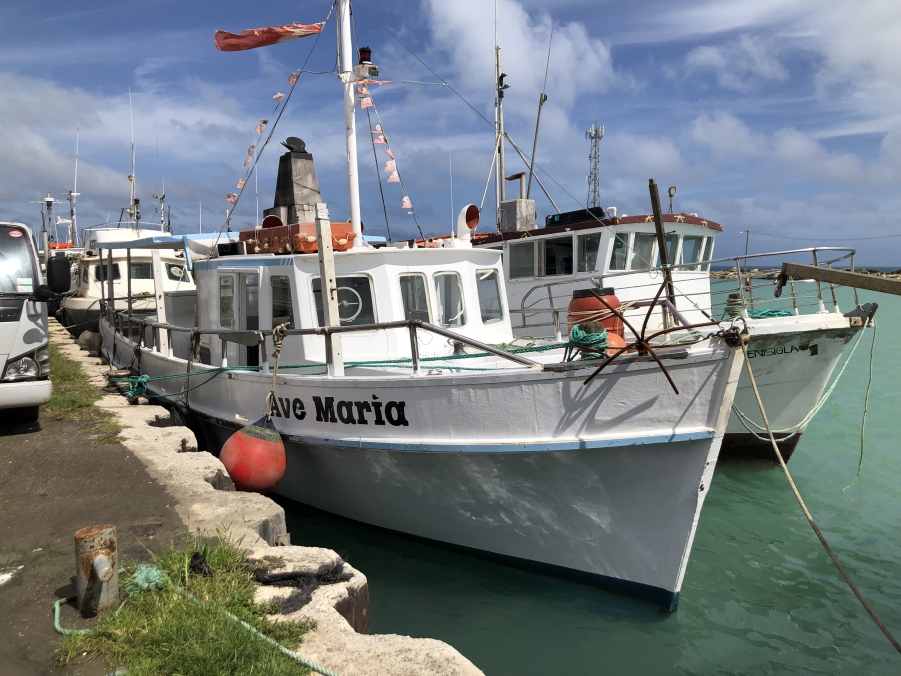The Tongan deepwater demersal line fishery is a valuable source of income, livelihood, and social well-being for the people of Tonga. The fishery has a history of boom-and-bust cycles with fluctuating catches and poor economic returns.
Deepwater demersal fish species are an important fisheries resource in many Pacific Island countries and territories. In Tonga, a fishery for deepwater demersal fish species has operated since the early 1980s. The fishery exploits a multi-species assemblage of deepwater snappers (Lutjanidae), emperors (Lethrinidae), and groupers (Serranidae) for export and domestic consumption.
The deepwater species harvested in the fishery have moderate to high vulnerabilities to fishing, as they are fairly long lived (with several species capable of living for over 40 years, and as high as 56 years), slow-growing, and late to mature. As such they need careful management to avoid overexploitation. However, the Tonga deep water demersal fishery has been characterised by cycles of ‘boom-and-bust’; where periods of large catches and intense exploitation are followed by periods of low catches and stock recovery. Changes in species abundance and composition over time are also evident.
A NIWA-led project (2015–2023), implemented in collaboration with Tonga’s Ministry of Fisheries (MoF), National Fisheries Council (NFC), and the Pacific Community (SPC), worked to develop a well-managed, economically and biologically sustainable fishery that could be a model for deepwater line fisheries throughout the Pacific region. Outcomes included the identification of increased revenue opportunities through economic, market, and social analyses, a diversified fishery, the development of a local market for deepwater squid, and increased business acumen of local fish vendors. Sustainability of the fishery was enhanced by strengthening Ministry of Fisheries monitoring and management procedures and through the revision of the Deepwater Fishery Management Plan (DFMP) to include harvest control rules, in-season catch monitoring, and an adaptive management framework for effective and transparent decision-making.
Key activities in Phase 1 (2015–2016) were:
- Conducting economic, market, gender and social inclusion analyses of the fishery.
- A strategic economic development plan and implementation pathway for the fishery.
- Conducting preliminary stock assessment and spatial population models for the main target species, flametail snapper (Etelis coruscans).
- Undertaking cost-benefit analyses of potential fishery monitoring methods.
- Developing, agreeing to, and implementing harvest control rules under the DFMP to ensure robust and transparent decision-making.
- Undertaking preliminary fishing trials for bluenose (Hyperoglyphe antarctica) and associated species to diversify the fishery.
- Building capacity of MoF staff to assess and monitor fisheries through attachments to project partners, secondments, workshops, and other trainings
- Building capacity of the fishing industry through training in accounting, finance, and business practices.
Key activities in Phase 2 (2017–2023) were:
- Conducting further analyses of the bio-economic sustainability of the fishery, including evaluations of the effect of various management and fishery diversification strategies to maximise sustainable economic returns to Tonga.
- Improving economic returns and domestic food security by diversifying catches through training fishers in alternative fishing techniques and providing fishing gears to target deepwater and nearshore squid, small pelagic fishes, and nearshore pelagic fishes such as tuna and mahi mahi.
- Exploring alternative export markets for deepwater snapper species to reduce reliance on the single Hawaiian export market.
- Developing a local market for deepwater squid through marketing campaigns, promotions, and public tastings.
- Assisting the NFC with the development of their Strategic Plan.
- Supporting continued catch monitoring, including of catch volumes and fish size.
- Developing analytical packages to monitor fishery performance.
- Updating stock assessments of flametail snapper to evaluate stock status.
- Undertaking whole-of-fishery descriptive analyses to evaluate recent changes to the fishery.
- Continuing capacity building for MoF staff to monitor and manage the fishery, including through attachments, workshops, and other trainings.
- Conducting mid- and full-term reviews of the 2017–2019 and 2020–2023 DFMPs.
- Building capacity of fishers and providing equipment to improve the safety and efficiency of their business operations and maintain consistency in product supply to markets.
- Building capacity of fish processors and vendors in fish handling and processing hygiene, and the provision of new equipment (such as insulated bins to hold fish, better knives, gloves, boots, aprons, and cleaning supplies) to improve marketability of catch, increase revenue, and support safer and more comfortable working conditions.
Funding & collaborators
The project was funded by the New Zealand Ministry of Foreign Affairs and Trade under the New Zealand Aid Programme. It was coordinated by a Project Management Group involving NIWA, MoF, NFC, and SPC, as well as the Fafine Tonga 'o Ngatai Women in Fisheries Group, and Tongan fishing industry representatives, MFAT and New Zealand’s Ministry of Primary Industries (MPI). The project was originally implemented in 2015 as a five-year, two-phase activity. Due to the COVID-19 pandemic, the project completed in June 2023.
The project partners thank MFAT for funding this work, and the Fafine Tonga ‘o Ngatai Women in Fisheries Group, MPI, the New Zealand Tonga Business Council, and the deepwater fishery licence holders and fishers for support.
Project resources
- About the project brochure
- For further information please see: Towards improved governance, management and sustainability of the demersal line fishery in Tonga
- Tonga’s line fishery - Project update 2018

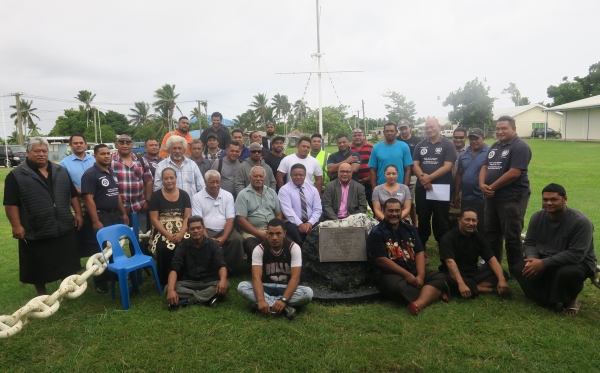
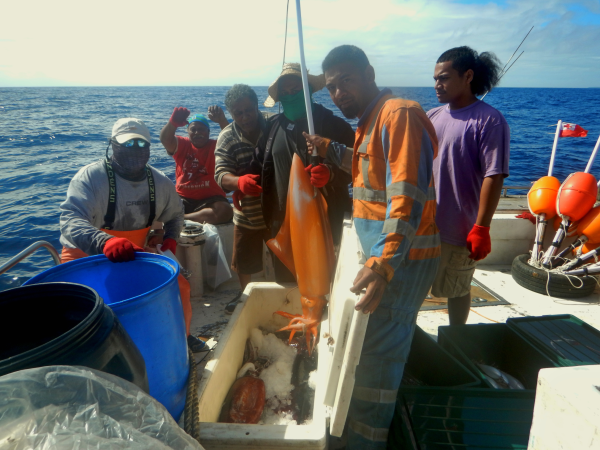
![SPC master fisher William Sokimi with a diamondback squid [MoF].](/sites/default/files/styles/portrait/public/2024-07/P1030772.jpg?itok=yYdaIIyi)

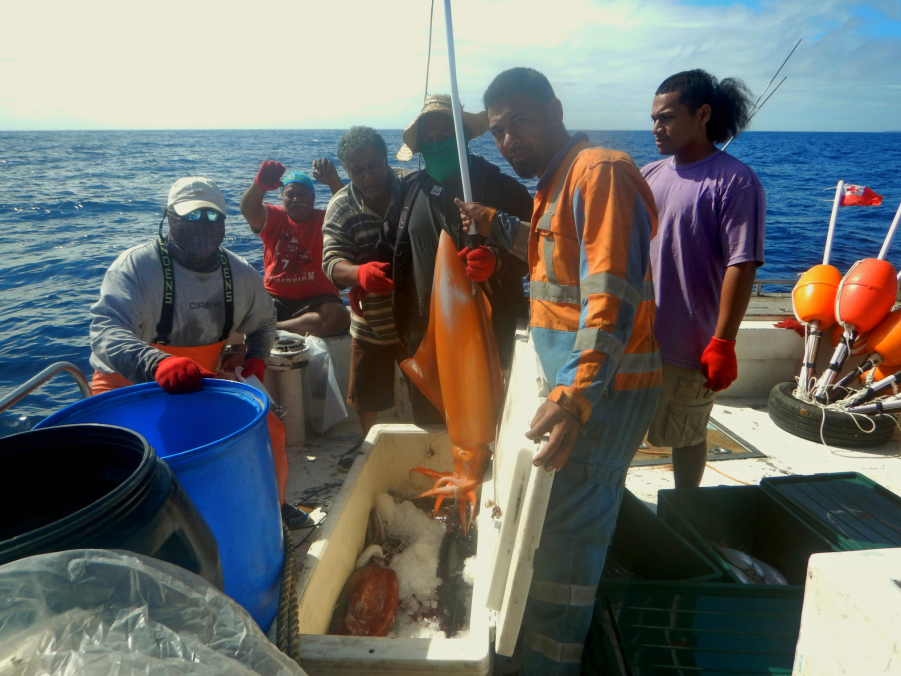
![Deepwater fish species [NIWA / Rebekah Parsons-King].](/sites/default/files/styles/gallery/public/2024-07/Tonga_tapu_parsons-king.png?itok=yendLjBX)
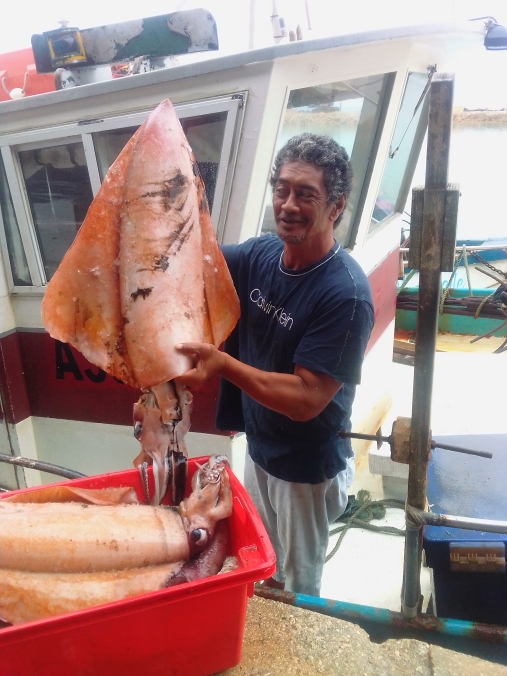
![Catch sampling at Tui’matamoana Wharf, Tongatapu, Tonga [NIWA / Rebekah Parsons-King].](/sites/default/files/styles/gallery/public/2024-07/image1-6-reduced.png?itok=L3afkfzX)
